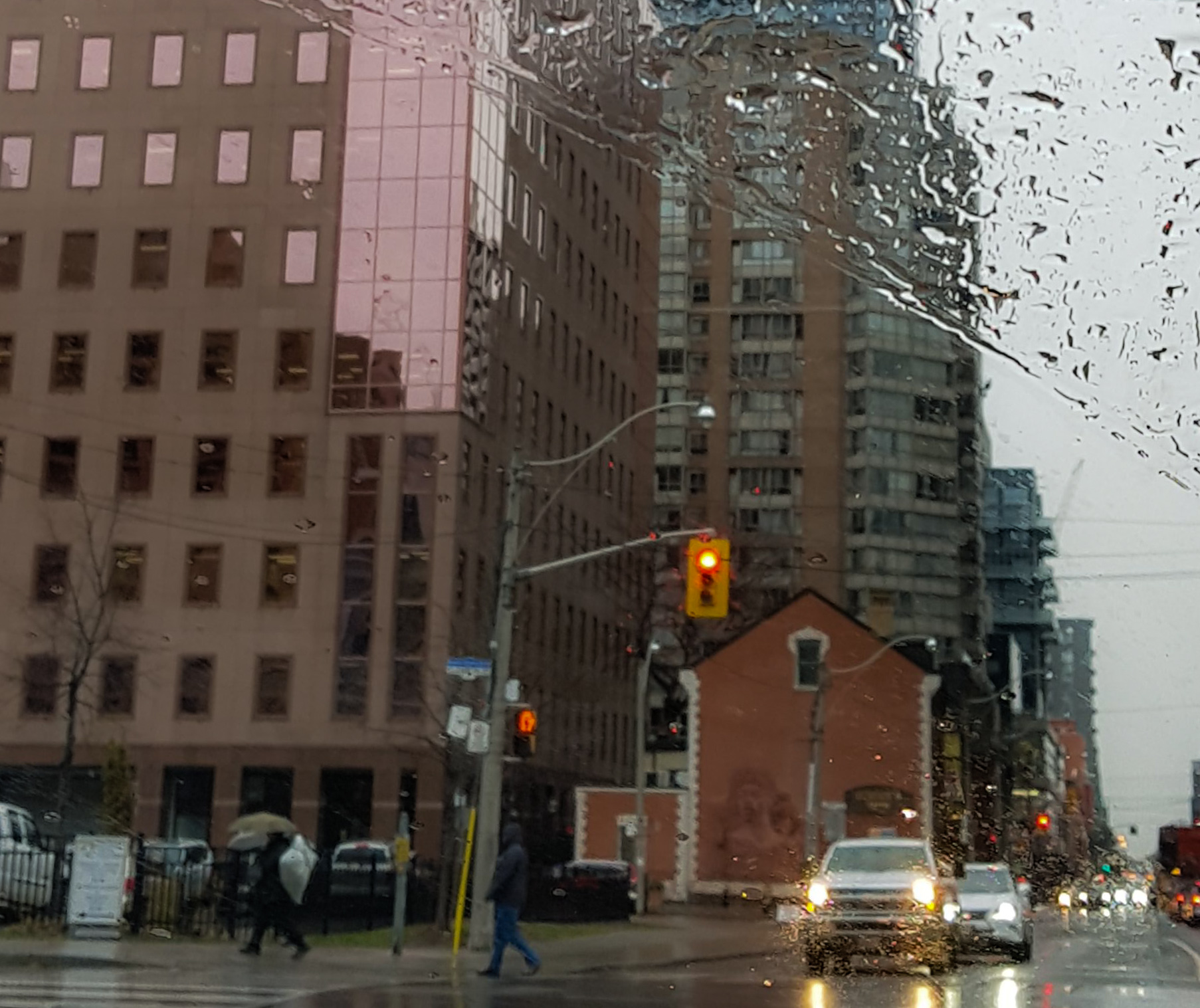When it rains, you get wet. It’s a simple fact that does not require much thought. Yet, it’s a truth we try to escape — try to ignore, find a way around, as if we can control everything.
The continuous and seemingly never-ending lockdowns that have defined our lives the past year and half have, it seems to me, pushed life to an edge.
Living in the city, now more than ever, feels like living in a pressure cooker — you know something is going to give, and soon, it’s just a matter of what and when.
In part, this is why I — like many others — needed time away from a city that has proven to bring more stress with each passing day.
Isolations and lockdowns have taken a massive toll on mental health. This could be a reason why more people have found themselves gravitating towards camping at provincial parks this past summer.
Due to the increased demand for campsites, it was not until the first weekend of September that the stars briefly aligned, and my family and I managed to find an available campsite.
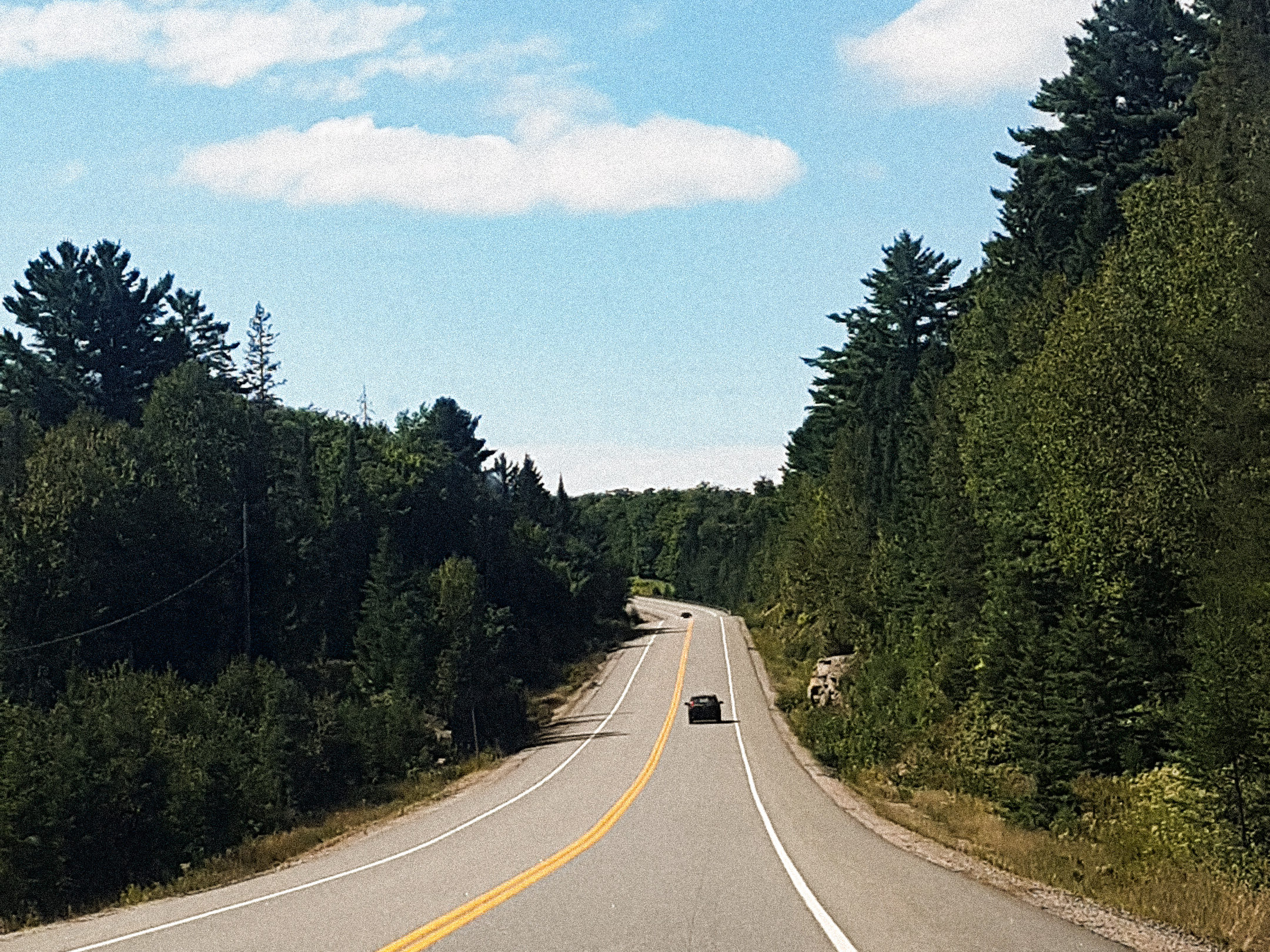
The six of us packed up for a four-day camping trip.
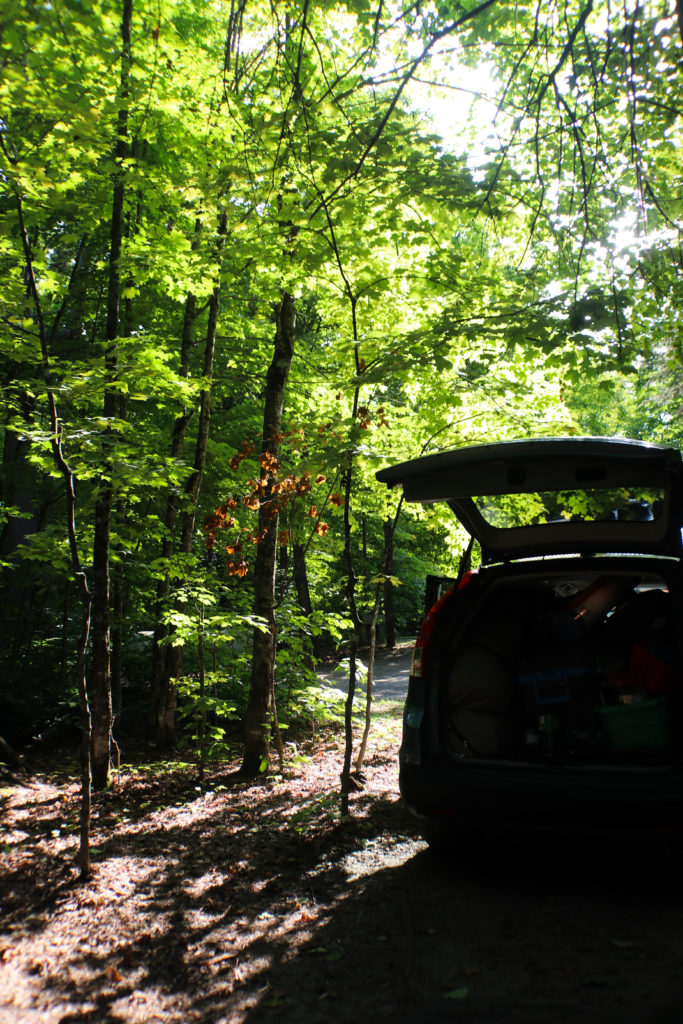
We hit the road early and arrived at Algonquin Provincial Park by mid-afternoon.
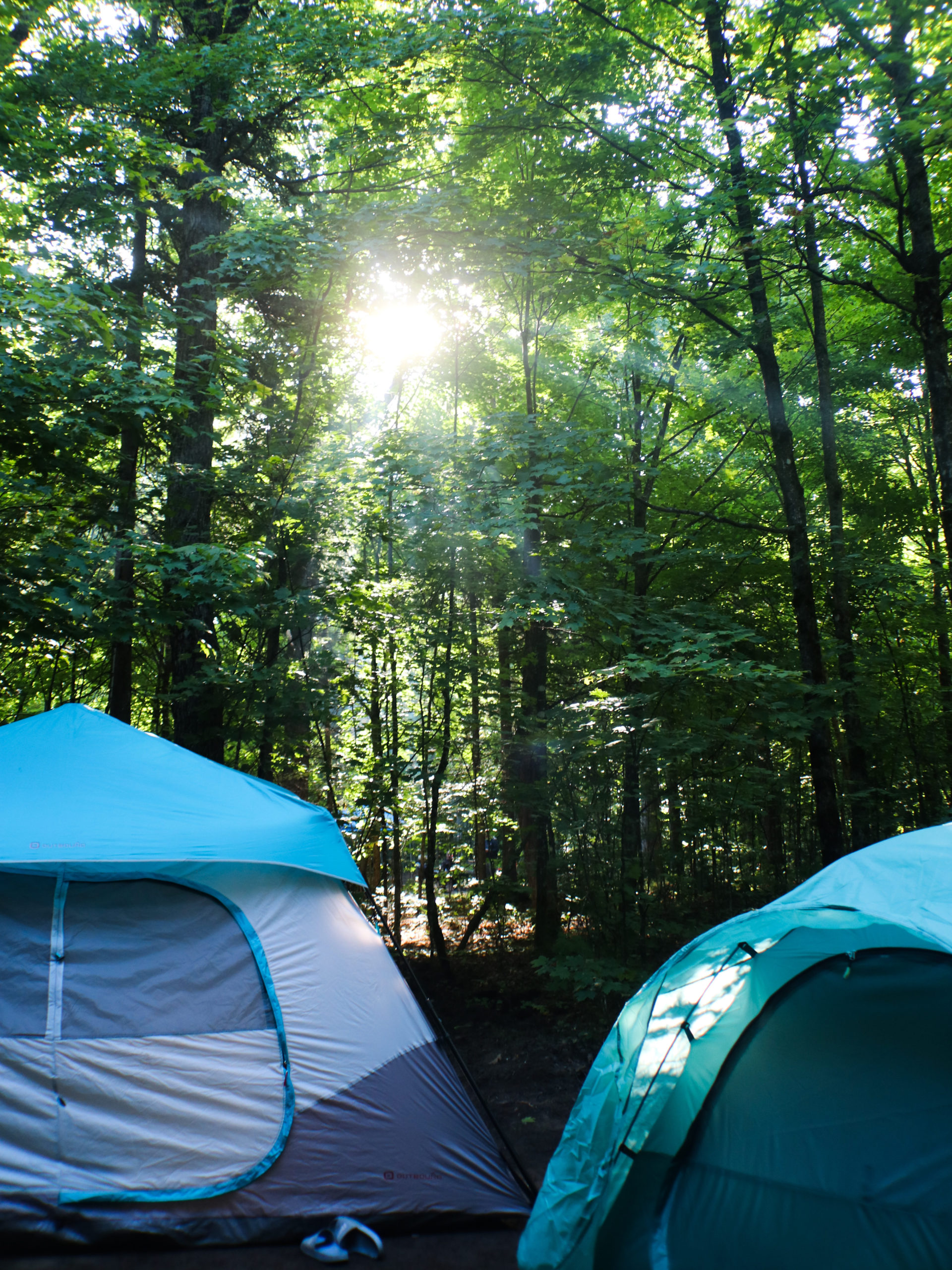
Our first official day consisted of setting up the campsite, getting wood, and making dinner.
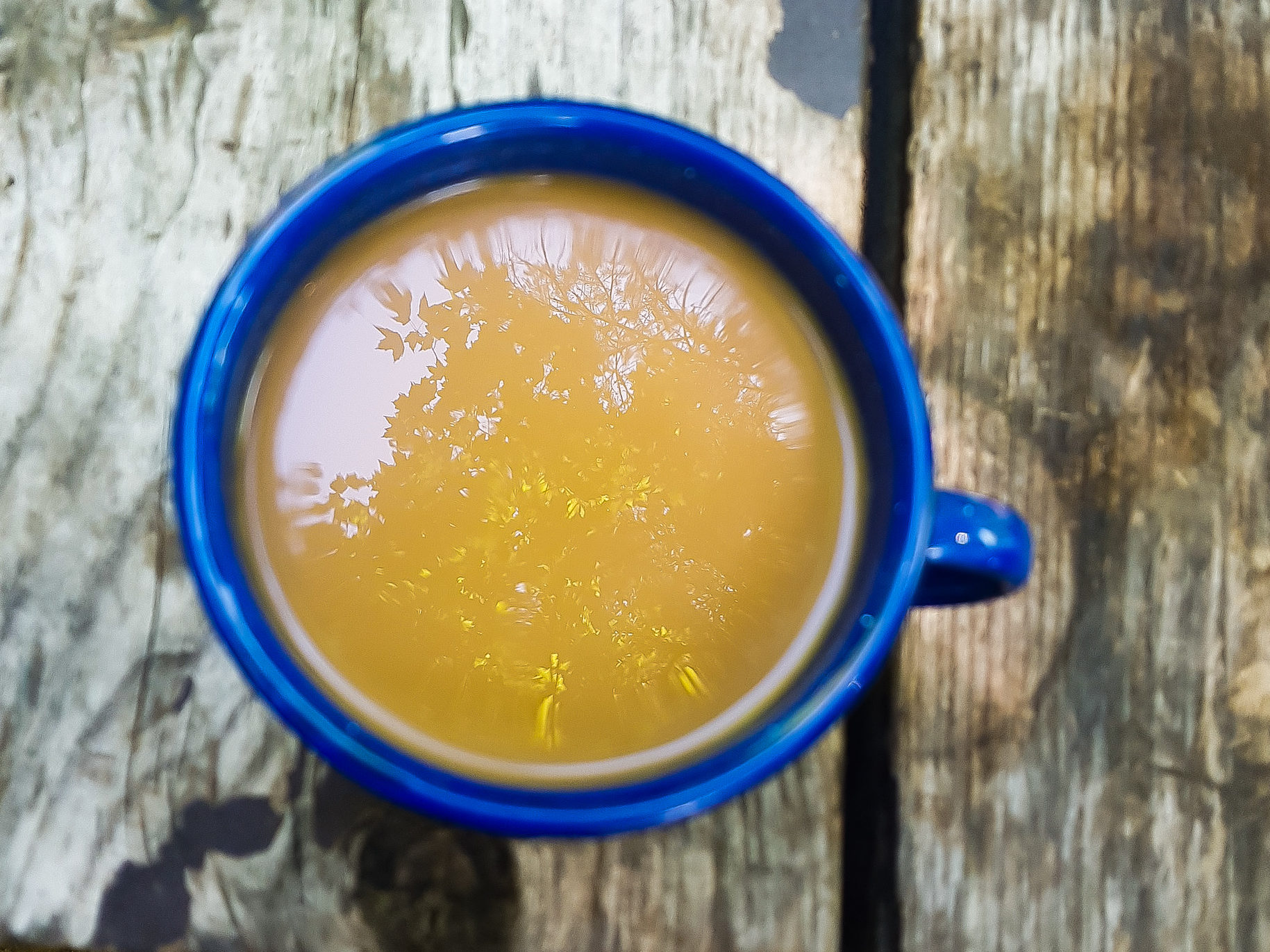
First thing in the morning, or what counts as first thing in the morning after staying up late around a campfire, we made coffee. We then hit a couple trails, one of which was the Spruce Bog Boardwalk.
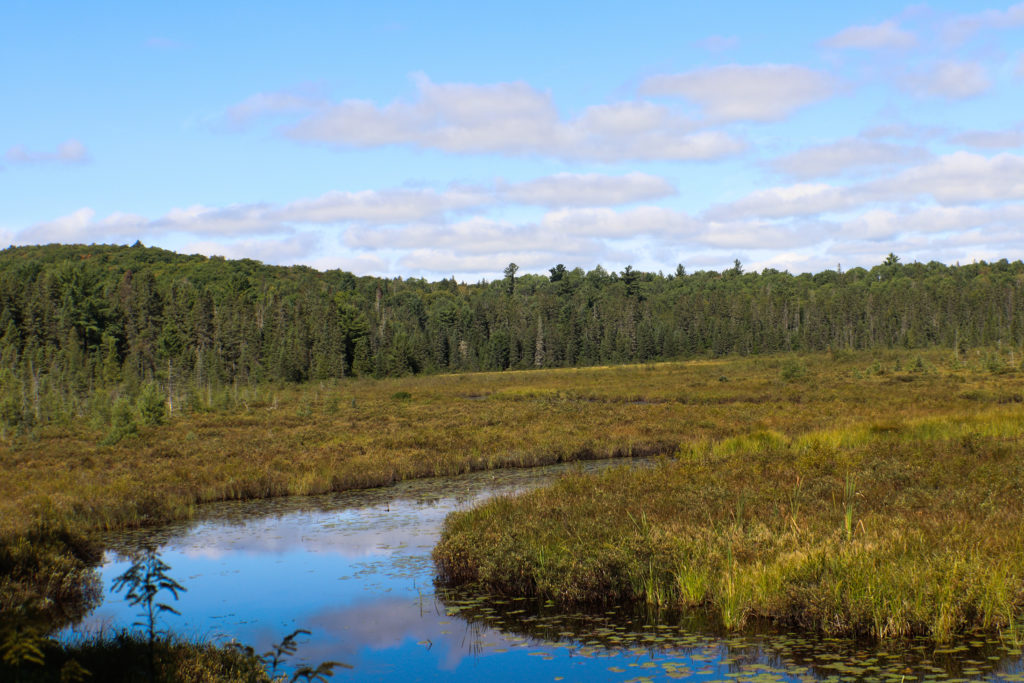
This particular trail is a 1.5-kilometre loop that takes you across two separate bogs where its inception began as open water systems 11,000 years ago. These systems were gradually changed by the landscape and its inhabitants — so much like the city in that way.
As you step onto the boardwalk and begin, the forested bog closes in around you at a distance, and the world is quiet — a living quiet composed of rustling bushes, swaying trees, and the understated sound of water. It exists in stark contrast to the imposing bustle of city streets where buildings tower over you, and people crowd around you.
When we finished the trail, we headed back to the car, and heard that bad weather was expected soon.
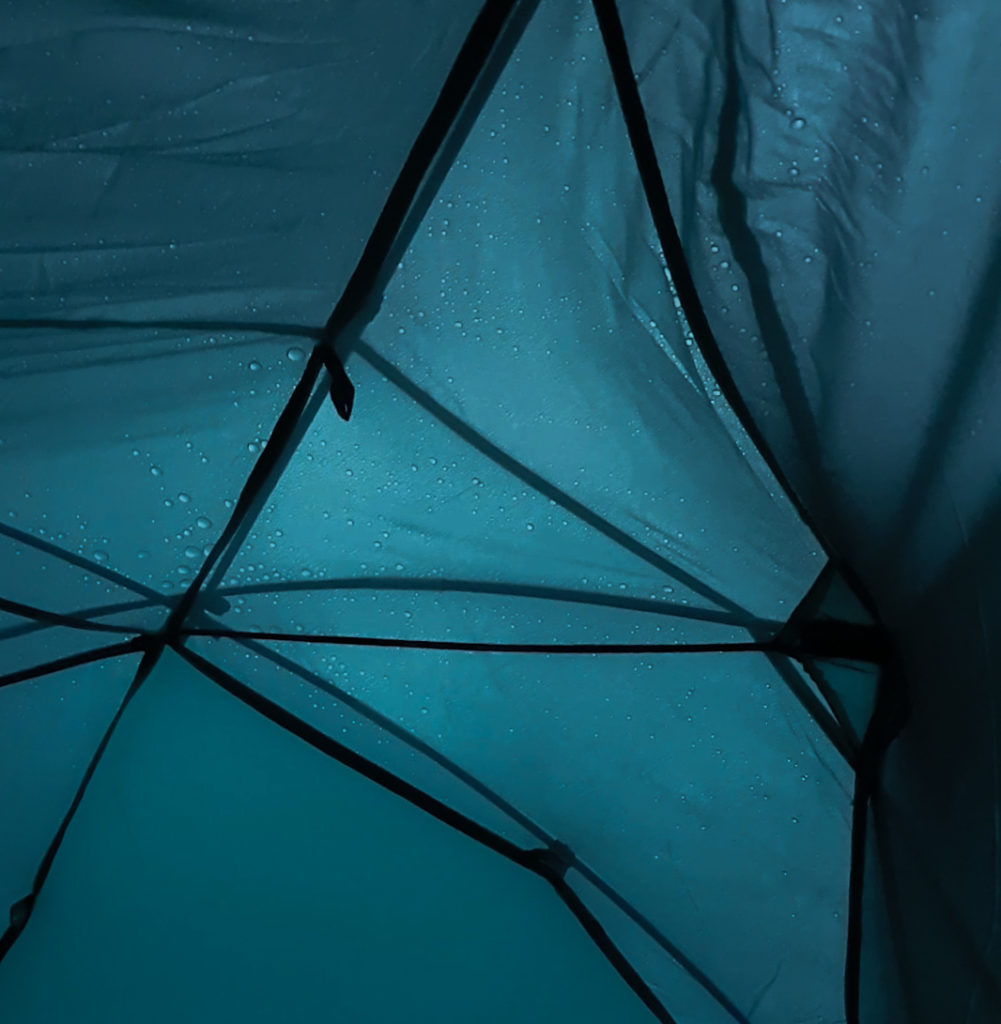
It poured all night.
The tent broke, rain seeped in, and sleeping bags were soaked.
With the same expected for the next two days, our options dwindled.
We packed up in the rain to go home.
Along the way, as a spur of the moment decision, we stopped at Beaver Pond, a two-kilometre trail. We walked under the canopy of trees as the rain incrementally slowed. We climbed up the steep looping hill to reach the lookout point just as the sun broke through the gloomy grey skies above.
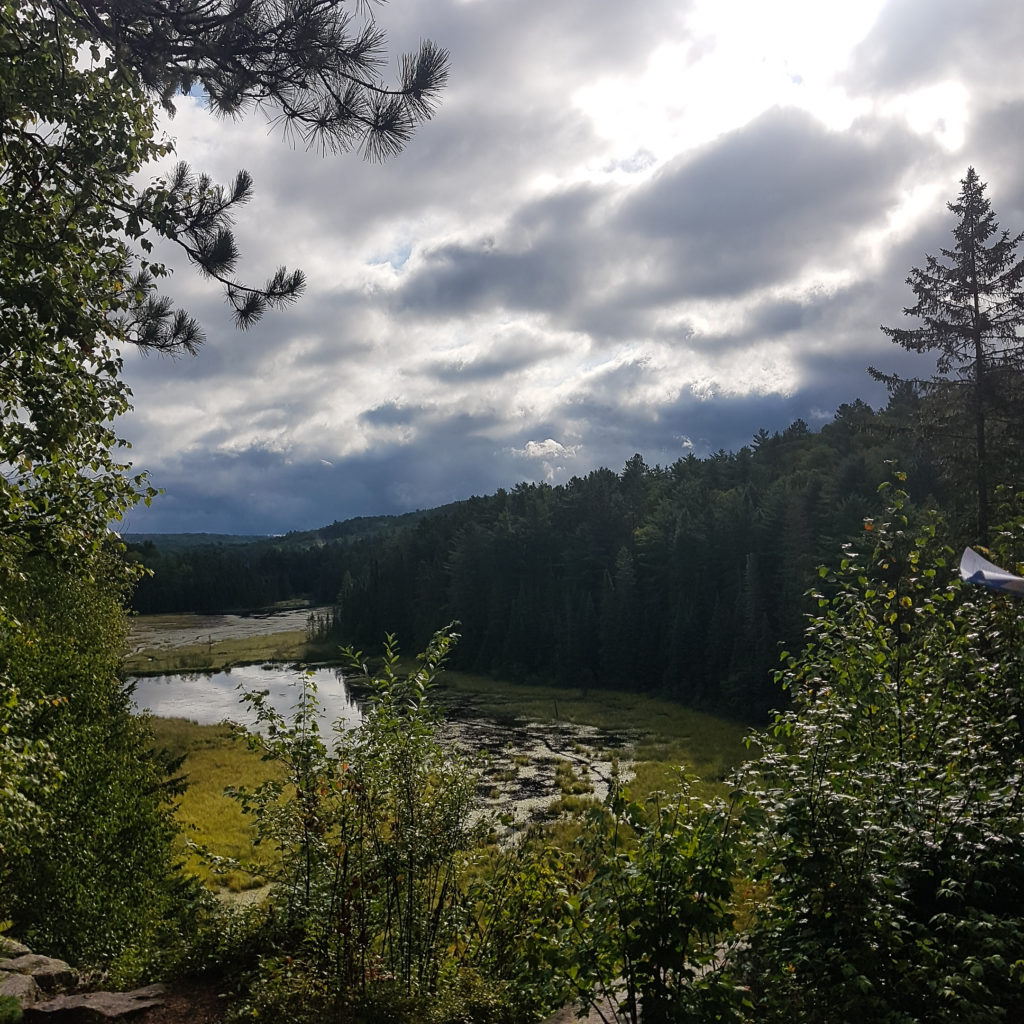
Trails are simple — so simple they almost seem to defy modern reason.
You pick a path, start at the beginning, and walk — it’s one foot after another.
The repetitious pattern clears your mind, opens your eyes and stress melts away — even in the rain, even when things don’t go your way, you’re forced to see more clearly.
It is such a seemingly simple activity, but serves as such a powerful reminder that when things don’t go the way you planned, all you can do is move forwards.
Being back in school for primarily remote classes, I remind myself of this constantly — when the internet cuts out, my computer doesn’t work, or I forget the proper start time and arrive late to a Zoom class, I remember that simple fact — when it rains, you get wet. Spending time trying to avoid raindrops only guarantees you miss the view.


